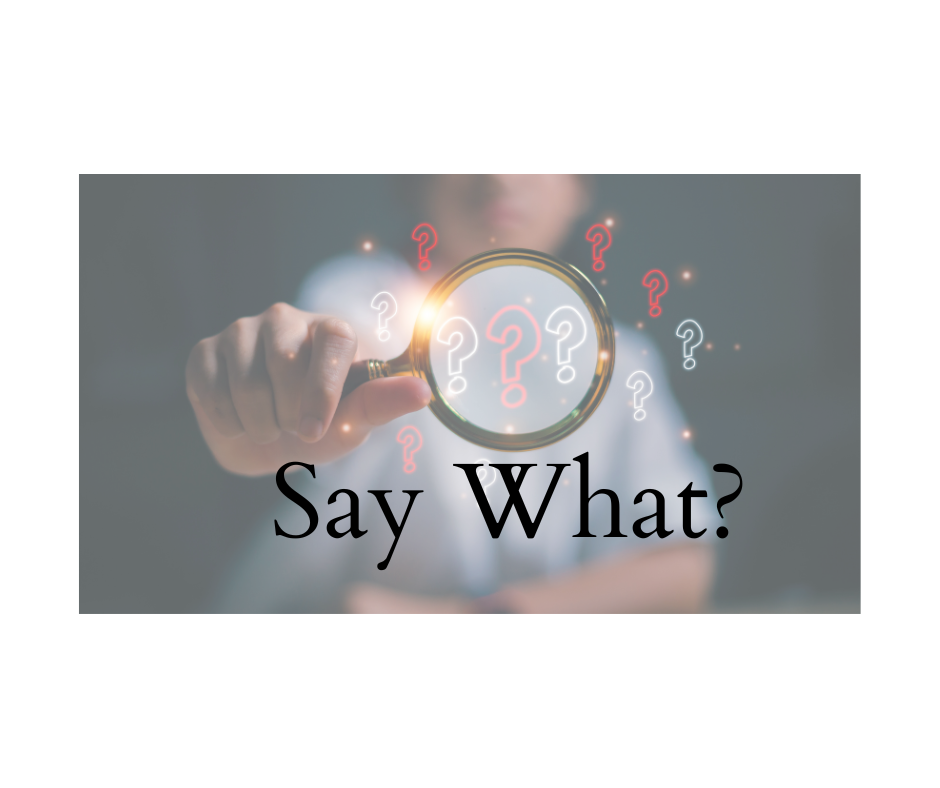Another Look at the Subjunctive Mood
Let’s take a further look into the subjunctive mood, since there are often places in our writing where this “mood” is just what we need. The thing to remember about using the subjunctive structure is that it is used for imaginary or hypothetical conditions. Think for a moment about the difference between these sentences:
- If I was home, I would have caught the intruder.
- If I were home, I would have caught the intruder.
- If I had been home, I would have caught the intruder.
In the first example, it’s assumed the statement could possibly have been true; it’s not an imaginary or hypothetical situation. If, in truth, I was home at the time, I would have caught that intruder.
In the second example, the subjunctive signals the reader that this situation is only hypothetical. It implies: I wish I had been home, for if I had been, I would have caught that bad guy.
The third sentence is again a realistic possibility. It isn’t a wish. I’m stating that yes, if I had been home, I would have caught the intruder.
When I’m unclear whether to use the subjunctive or not, I replace the subjunctive verb form with the normal indicative. For example, I might write:
- If I were hungry, I would eat that whole cake.
I then rewrite it this way, in past tense, and if it could be a true possibility in my scene, I know I should not use the subjunctive:
- If I had been hungry, I would have eaten that whole cake.
Hmm, that is a true, not hypothetical, statement, so the correct way to write that line would be:
- “Dude, if I was hungry, I would eat that cake.”
We also use present subjunctive in statements that express a suggestion, requirement, or request. Such statements use verbs such as ask, insist, urge, require, demand, recommend, and suggest. These verbs often precede a subordinate clause beginning with that, with the clause containing the substance of the request, requirement, or suggestion.
- The doctor insisted that she walk at least a mile a day.
- The professor requires that each student write six essays in the course.
- John’s father demanded that he apologize for burning down the neighbors’ house.
Auxiliary verbs could, would, and should might also express the subjunctive mood, especially when one expresses a condition contrary to fact.
- If the forecaster were correct, I would be prepared. (Condition contrary to fact: If the forecaster could be correct, I would be prepared.)
- If Bill were to marry Sally, he would be happy. (Condition contrary to fact: If Bill should marry Sally, he would be happy.)
You probably had no idea there was so much to the subjunctive mood. And there’s more! We’ll take a look next week at some other forms of the subjunctive. If I were to list them all here, the post would be very long!








Great article. I love this stuff, but I have a question.
I believe I once heard that the past subjunctive of “be” acts in the present, so if I say “If I were you…,” I am referring to a hypothetical situation in the present. If I wanted to use the subjunctive form that acts in the past, I would need to use the past perfect form of be (“had been”).
So, in your three examples, I agree that the first example implies a real possibility that I might have been at home but wasn’t. The second one should be restated so that the main clause is in the present tense (so that it matches the present sense of the subjunctive were). Third one is the subjunctive form of the past tense of be and refers to a purely hypothetical situation.
1) If I was home, I would have caught the intruder.
2) If I were home, I would CATCH INTRUDERS LIKE HIM.
3) If I had been home, I would have caught the intruder.
What are your thoughts about this?
Thanks,
John
The second example you rewrote is saying something different from my example. Here you are saying you would be able to catch any intruder. My sentence was implying that if I had been home, I would have caught that particular intruder. Both are correct usages of the subjunctive, but with a little different meaning. Both, though, are only posing possibilities that weren’t able to be true incidents. Does that make sense?